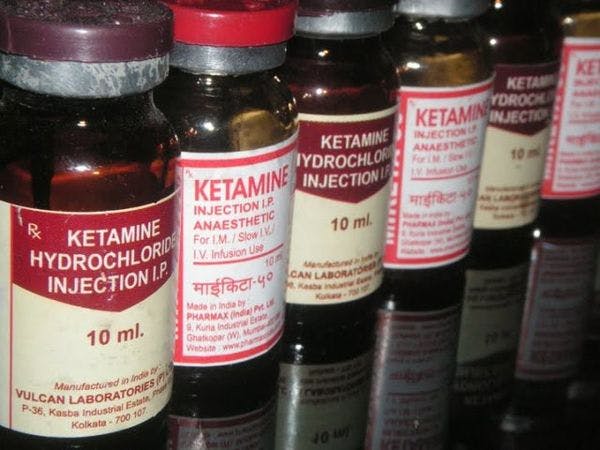Ketamine secured for medical and veterinary use!
On Friday 13th March, the Commision on Narcotic Drugs discussed the possible bringing of ketamine under international drug control. Initially, China proposed to add the substance under Schedule I of the UN Convention on Psychotropic Substances. Such a scheduling means that the substance can be used for medical purposes only under direct governmental supervision, and in very limited situations. The proposal was very inappropriate for an essential medicine. However, thanks to the efforts of many, China amended its proposal to the less strict Schedule IV of the same convention. Again we opposed this and thanks to our opposition, China withdrew this morning its entire proposal. The CND then decided to postpone its decision on scheduling ketamine to a future date to allow more information to be gathered. A transcript of the debate is available on the CND Blog.
This is a very good result and I want to thank everyone who was involved in the lobbying to keep access to ketamine as a human and veterinary medicine for his or her efforts. In the end we had 87 endorsements on the fact sheet and several organizations came to Vienna to convince the delegates personally. Many went to their governments to convince the ministries of health and the drug controllers that any scheduling of ketamine was not a good idea.
Over the past few weeks it became more and more clear that we were successful, and many countries declared that they would oppose the scheduling. Initially, we were able to find over 19 CND members opposing schedule IV, and once we had these, we continued to convince more CND Member countries to oppose all scheduling. This became clear only gradually toward last weekend. In my messages you may have seen the countries I recommended to focus your lobby on. On purpose we decided not to be transparent on the countries we had convinced. I hope for your understanding, as such transparency would have made it easy for China to lobby these countries back into its camp.
During the week at the CND (which started last Monday), we discussed with country delegations the possible ways forward, being afraid of unwanted precedents in the procedure. But finally today, it happened as some had predicted: China withdraw its proposal while saving face by saying that this allows for more data collection. How serious this "more data collection" is, is in this stage not completely sure. It may be that we never hear back about ketamine scheduling, but some vigilance is needed in the coming years.
What further to do? There are over 50 countries who have scheduled ketamine in their national legislation (i.e. independent form the international drug control conventions). In several of these countries, veterinarians and physicians may have experienced reduced availability of ketamine already. They and their organizations may want to discuss the issue now with their governments in order to re-increase availability. Because of this CND and Chinas proposal, the climate may have changed now. After some of the preparatory meetings, someone mentioned that this was the first time ever that the countries at the CND discussed medicines availability for over three hours. Never before there was such a focus at the internaitonal levle on the relation between drug control and medicines availability. Therefore, this is the moment that most drug controllers around the world are seeing that drug control has also the negative side for public health of medicines unavailability.
Medical and veterinary organizations may also want to use the opportunity for discussing the availability of medicines controlled as drugs more in a general way, e.g. the availability of opioid analgesics, long-acting opioids for the treatment of opioid dependence, phenobarbital and other controlled medicines.
For those who want to take action in this regard, I also refer to the WHO Guidelines on this issue, available in multiple languages, including English, French and Spanish.
I thank all who were contributed once more, and I dare to do so also on behalf of the others who were involved in a core team of campaigners (which I am not going to list, because we were a fuzzy network which' composition changed every now and then).
Keep up-to-date with drug policy developments by subscribing to the IDPC Monthly Alert.
